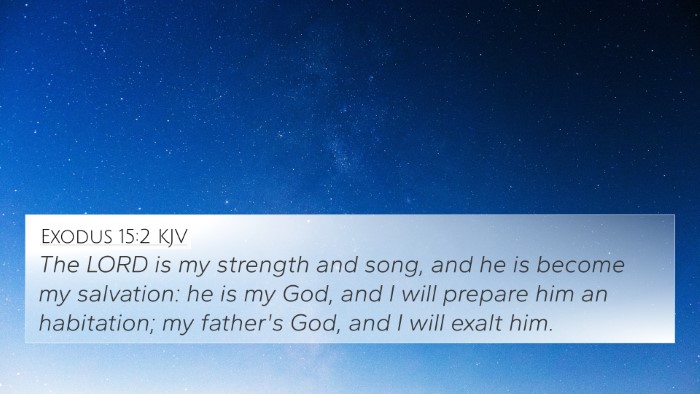Psalms 43:2 - Summary and Commentary
Bible Verse: Psalms 43:2
"For you are the God in whom I take refuge; why have you rejected me? Why do I go about mourning because of the oppression of the enemy?"
Verse Meaning and Commentary
This verse is a profound expression of the psalmist's struggle with feelings of abandonment and oppression. It reflects a deep emotional state and the desire for divine intervention. Here are insights derived from public domain commentaries:
-
Matthew Henry's Commentary:
Matthew Henry explains that in this verse, the psalmist pleads with God as the ultimate refuge in times of trouble, highlighting a relationship between the believer and God. The apparent rejection from God leads to a profound sense of despair. The psalmist feels overwhelmed due to both external oppressions from enemies and an internal sense of abandonment.
-
Albert Barnes' Notes:
Barnes emphasizes the duality of seeking refuge while feeling rejected. He discusses the emotional turmoil faced by the psalmist, indicating that the level of mourning experienced stems from a perceived silence from God during times of need. The verse indicates a longing for God’s guidance and protection, serving as an example of how believers can experience doubt amidst their faith.
-
Adam Clarke's Commentary:
Clarke echoes the sentiment of distress and highlights the weight of external pressures from enemies that drive the psalmist to question God. He also focuses on the idea that God, known as a refuge, should not bring about despair, leading to an exploration of the complex nature of faith during tribulation.
Connections Between Bible Verses
Psalms 43:2 not only stands alone but also presents thematic connections with various other scriptures. This relational analysis enhances our understanding of the spiritual experience depicted in the verse.
- Psalms 34:18 - "The Lord is near to the brokenhearted and saves the crushed in spirit." This verse provides solace for those who may feel abandoned.
- Psalms 142:4 - "Look to the right and see; there is none who takes notice of me; no refuge remains to me; no one cares for my soul." This correlation highlights feelings of isolation.
- Psalms 27:9 - "Hide not your face from me. Turn not your servant away in anger, O you who have been my help. Cast me not off; forsake me not, O God of my salvation!" These themes of seeking God's face are interwoven with feelings of abandonment.
- Isaiah 53:3 - "He was despised and rejected by men; a man of sorrows, and acquainted with grief." This verse about Christ foreshadows the rejection the psalmist perceives and deepens the understanding of suffering.
- Romans 8:31-32 - "What then shall we say to these things? If God is for us, who can be against us?" This verse juxtaposes assurance from God with the psalmist's feelings of danger.
- Matthew 11:28 - "Come to me, all who labor and are heavy laden, and I will give you rest." A strong call for refuge in times of distress.
- Hebrews 4:16 - "Let us then with confidence draw near to the throne of grace, that we may receive mercy and find grace to help in time of need." This verse encourages believers to seek divine help, similar to the plea in Psalms 43:2.
Thematic Insights
The verse touches upon various themes such as:
- Refuge in God: The psalmist's acknowledgment of God as a refuge highlights themes prevalent throughout the Scriptures.
- Spiritual Mourning: The sorrow expressed deals with profound emotional pain that believers experience amidst trials.
- Divine Absence and Longing: There is a tension felt when the faithful believe they are abandoned, yet maintain their trust in God's ultimate power.
Cross-Referencing Biblical Texts
Engaging with Psalms 43:2 allows for cross-referencing that elucidates the scriptures. Tools for Bible cross-referencing can significantly enhance one's understanding of the grief, refuge, and hope expressed within sacred texts.
This verse invites deeper inquiry into pertaining across various sections, including prophetic literature, the Gospels, and epistles that define the dynamic between emotions in faith and the loving-kindness of God.
Conclusion
In summary, Psalms 43:2 is a heartfelt expression that resonates with many believers facing despair. By utilizing cross-referencing tools and comparative analysis, one can glean rich insights into both the personal struggles expressed and the overarching narrative of God's steadfast presence amid turmoil. The thematic connections explored not only enrich understanding but also provide encouragement as believers navigate their spiritual journeys.

















